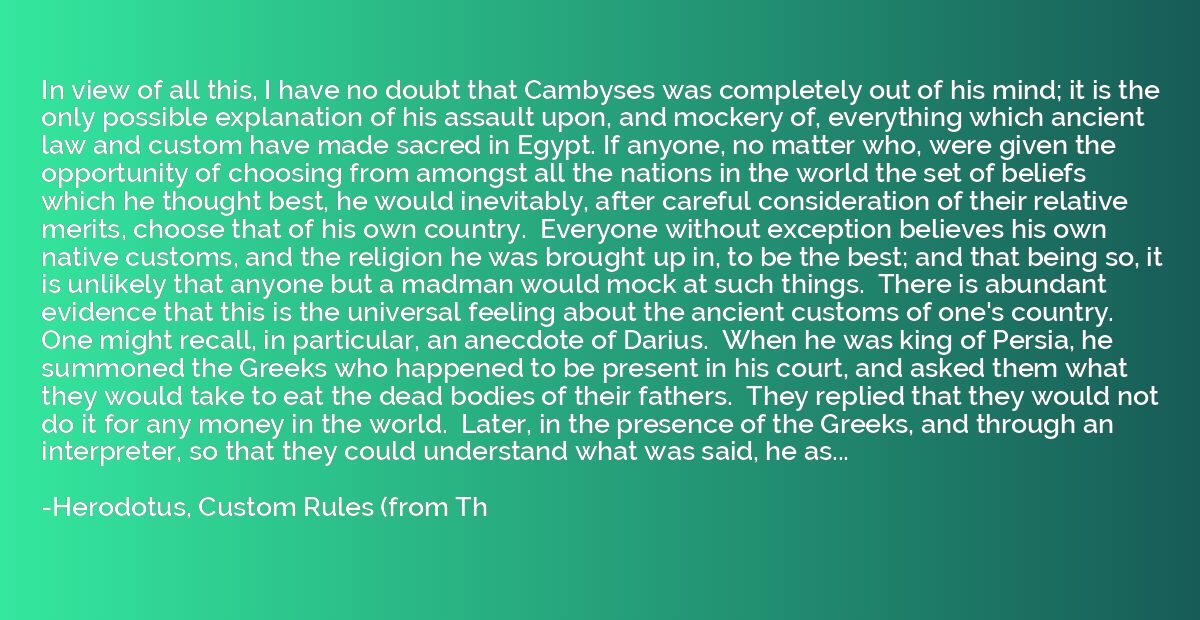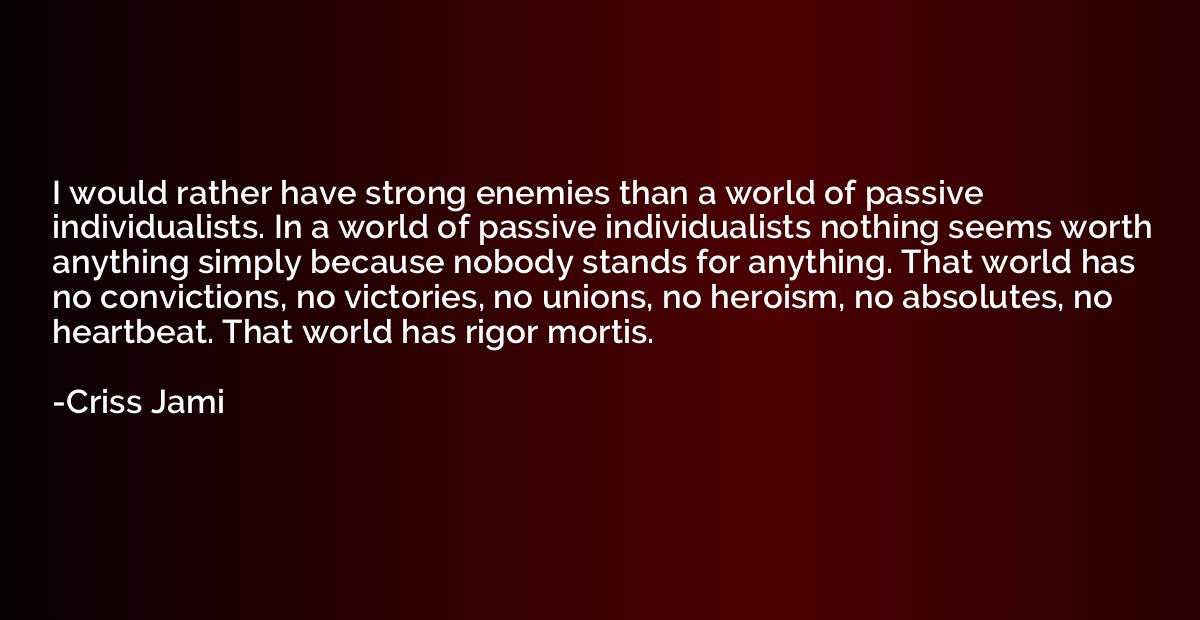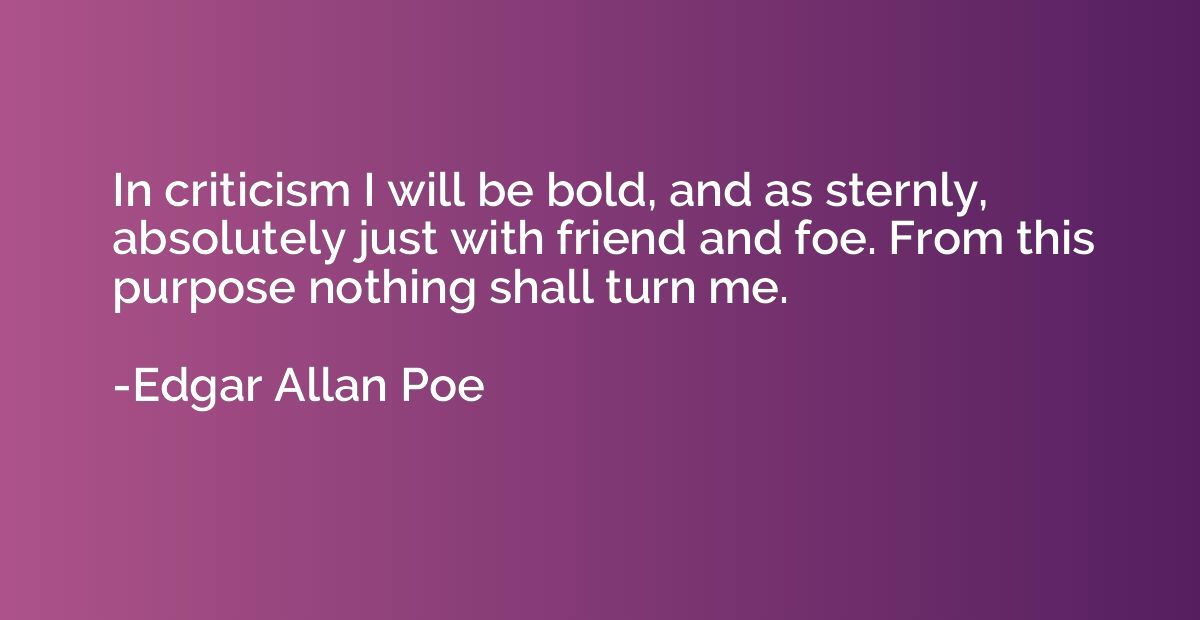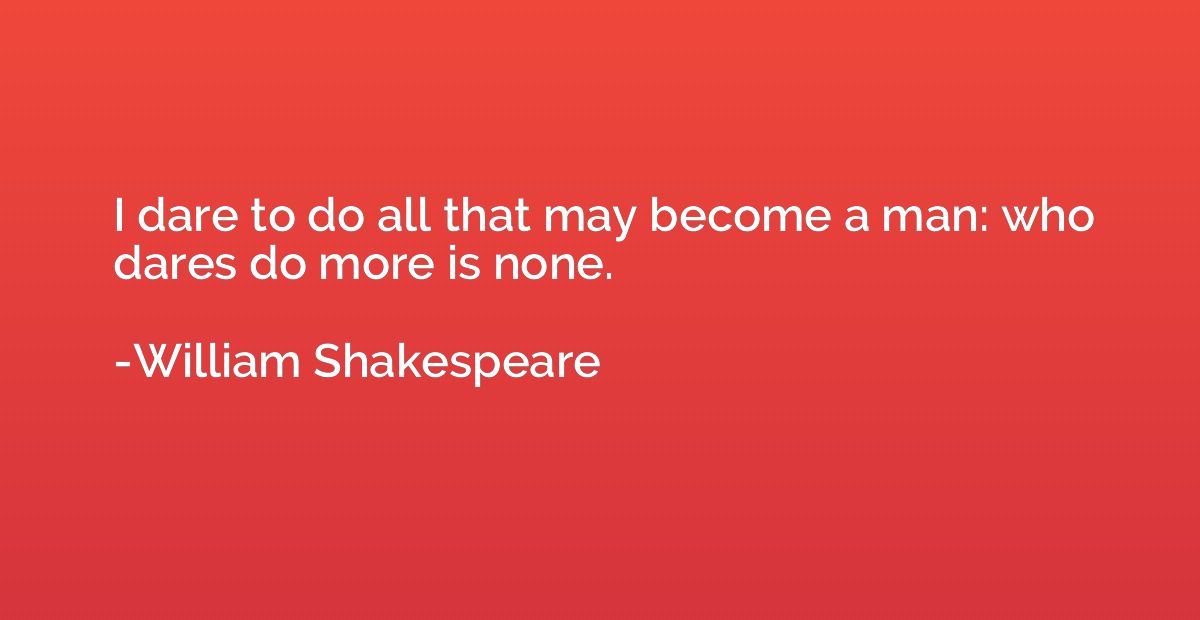Quote by Herodotus, Custom Rules (from Th
In view of all this, I have no doubt that Cambyses was completely out of his mind; it is the only possible explanation of his assault upon, and mockery of, everything which ancient law and custom have made sacred in Egypt. If anyone, no matter who, were given the opportunity of choosing from amongst all the nations in the world the set of beliefs which he thought best, he would inevitably, after careful consideration of their relative merits, choose that of his own country. Everyone without exception believes his own native customs, and the religion he was brought up in, to be the best; and that being so, it is unlikely that anyone but a madman would mock at such things. There is abundant evidence that this is the universal feeling about the ancient customs of one's country. One might recall, in particular, an anecdote of Darius. When he was king of Persia, he summoned the Greeks who happened to be present in his court, and asked them what they would take to eat the dead bodies of their fathers. They replied that they would not do it for any money in the world. Later, in the presence of the Greeks, and through an interpreter, so that they could understand what was said, he asked some Indians, of the tribe called the Callatiae, who do in fact eat their parents' dead bodies, what they would take to burn them. They uttered a cry of horror and forbade him to mention such a dreadful thing. One can see by this what custom can do, and Pindar, in my opinion, was right when he called it king of all.(Herodotus is expressing his own feelings about the story of the madness of Cambyses)

Summary
This quote from Herodotus explains how individuals tend to view their own customs and beliefs as superior to those of other cultures. The author suggests that it would be natural for someone to choose their own country's set of beliefs as the best if given the opportunity to compare all beliefs. Therefore, it is unlikely that a sane person would mock or disrespect the sacred traditions and customs of their own culture. The anecdote of Darius, where Greeks refuse to eat their own dead bodies while Indians find the idea horrifying, showcases how customs shape individuals' perspectives. This illustrates the power and influence of cultural customs in shaping people's beliefs and behaviors.














